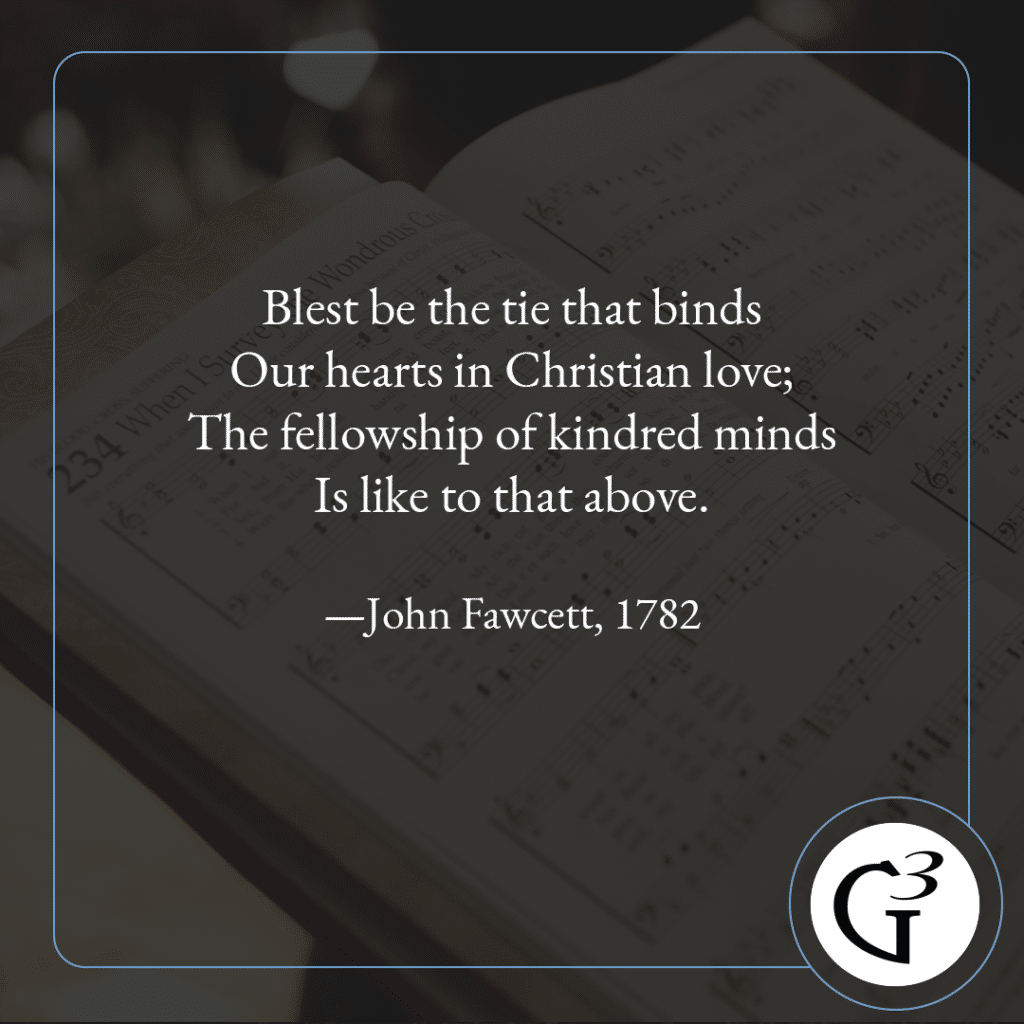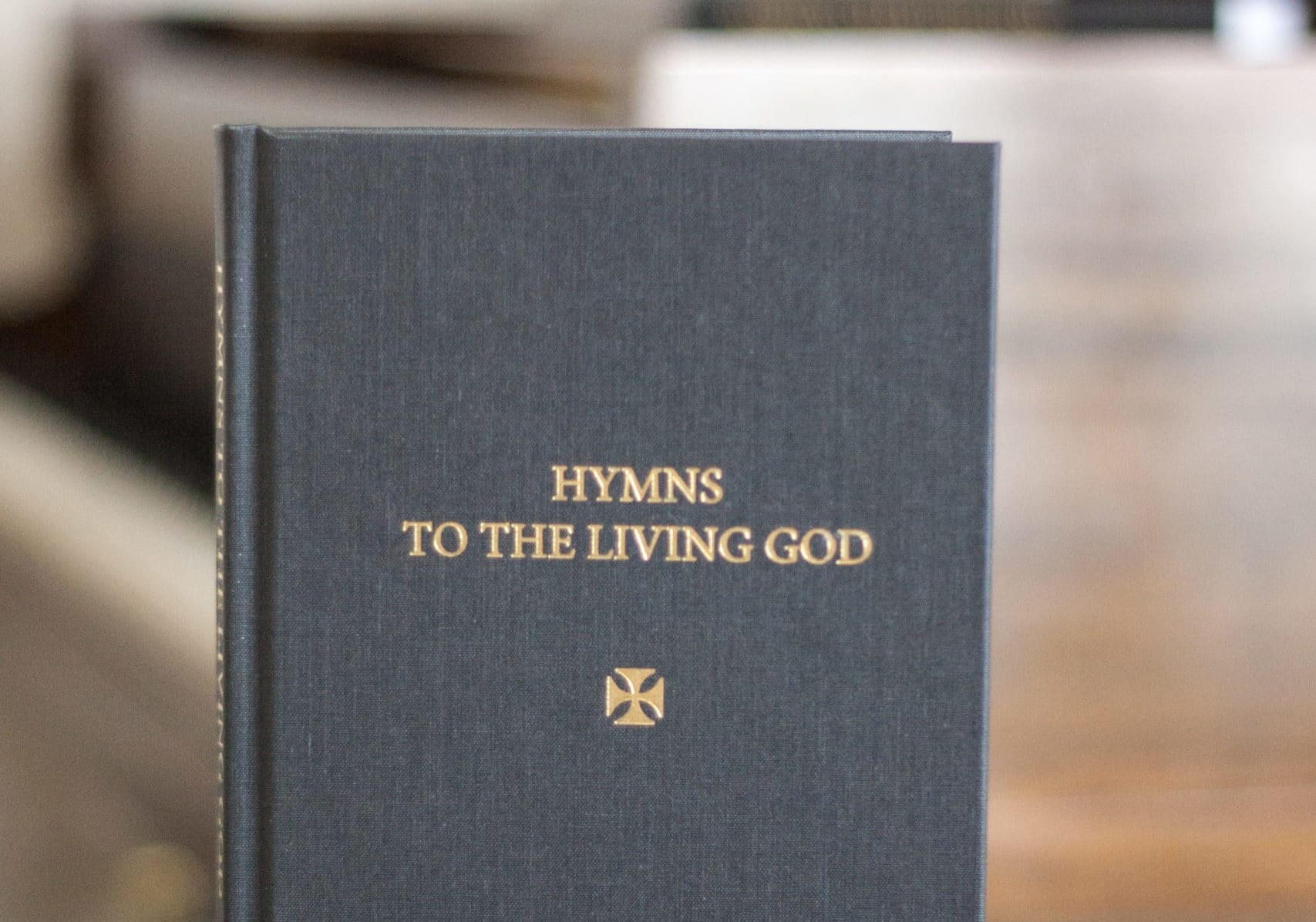
The great John Gill was dead. For fifty-one years, he had pastored the prominent Carter’s Lane Baptist Church in London and had gained a wide audience through his preaching and writing. But now, in 1772, the church’s search for a new pastor led them to the backwater village of Wainsgate, where a young man named John Fawcett had pastored a group of shepherds and farmers since 1765. Fawcett and his wife Susanah1Or possibly Mary, according to some sources. had grown to love the people, and the people loved them. Yet the Fawcett family was growing, and the small salary afforded by the Wainsgate church was barely enough to meet their needs. John preached at the London church, the church liked what they heard, and the church issued a call to John to become their next pastor.
John returned to Wainsgate to conclude his ministry there. According to the often-repeated story, he had preached his farewell sermon, the Fawcetts’ belongings had been loaded into wagons, and the church people came to see them off. As Susanah looked at the group of people who loved them and had wept and rejoiced with them for the past seven years, she said, “Oh John, I know not how to go.” John’s reply was immediate: “Nor I, and we shall not go.” He gave the command, and the wagons were unloaded.
John Fawcett pastored his church in the Wainsgate area for another forty-five years.
In 1782 Fawcett published a book of hymns, which he had written to be sung at the end of church services. One of these seems to have been clearly inspired by the events of ten years earlier: “Blest be the tie that binds/Our hearts in Christian love./The fellowship of kindred minds/Is like to that above.” One of surprisingly few common hymns written by Baptists, this meditation on the theme of Christian fellowship also stands as a tribute to humble, faithful service and genuine love for fellow believers.
The second stanza speaks of the prayers that believers share for one another—united in faith around the same throne of God, uniting their requests before the Lord. One is reminded of Jesus’s words in Matthew 18:19: “Again I say to you, that if two of you agree on earth about anything that they may ask, it shall be done for them by my Father who is in heaven.” The third stanza puts in poetic form Paul’s words in Romans 12:15: “Weep with those who weep.” The fourth stanza printed here reflects Fawcett’s deep love for the people of his Wainsgate church. Though the parting did not happen in 1772 as the church people had originally feared, one would assume that by the time Fawcettt died in 1817 that his love for his people and their love for him made that final parting even more painful. Their reunion in heaven must have been sweet.
In an interesting footnote to this story, Carter’s Lane Baptist Church continued its search and called John Rippon as their next pastor. John Rippon had a deep interest in hymnody as well, and in 1787 published A Selection of Hymns,2This is the considerably shortened title. which marked the first appearance of the hymn “How Firm a Foundation.” Rippon also promoted Fawcett’s “Blest Be the Tie.” After an incredible sixty-three years at Carter’s Lane (by then called New Park Street Baptist), Rippon died in 1836. Less than two decades later, in 1854, the church called as pastor a nineteen-year-old man without any formal theological training. His name: Charles Haddon Spurgeon.
Blest be the tie that binds
Our hearts in Christian love;
The fellowship of kindred minds
Is like to that above.
Before our Father’s throne
We pour our ardent prayers;
Our fears, our hopes, our aims are one
Our comforts and our cares.
We share each other’s woes,
Our mutual burdens bear;
And often for each other flows
The sympathizing tear.
When we asunder part,
It gives us inward pain;
But we shall still be joined in heart,
And hope to meet again.
—John Fawcett, 1782
References



